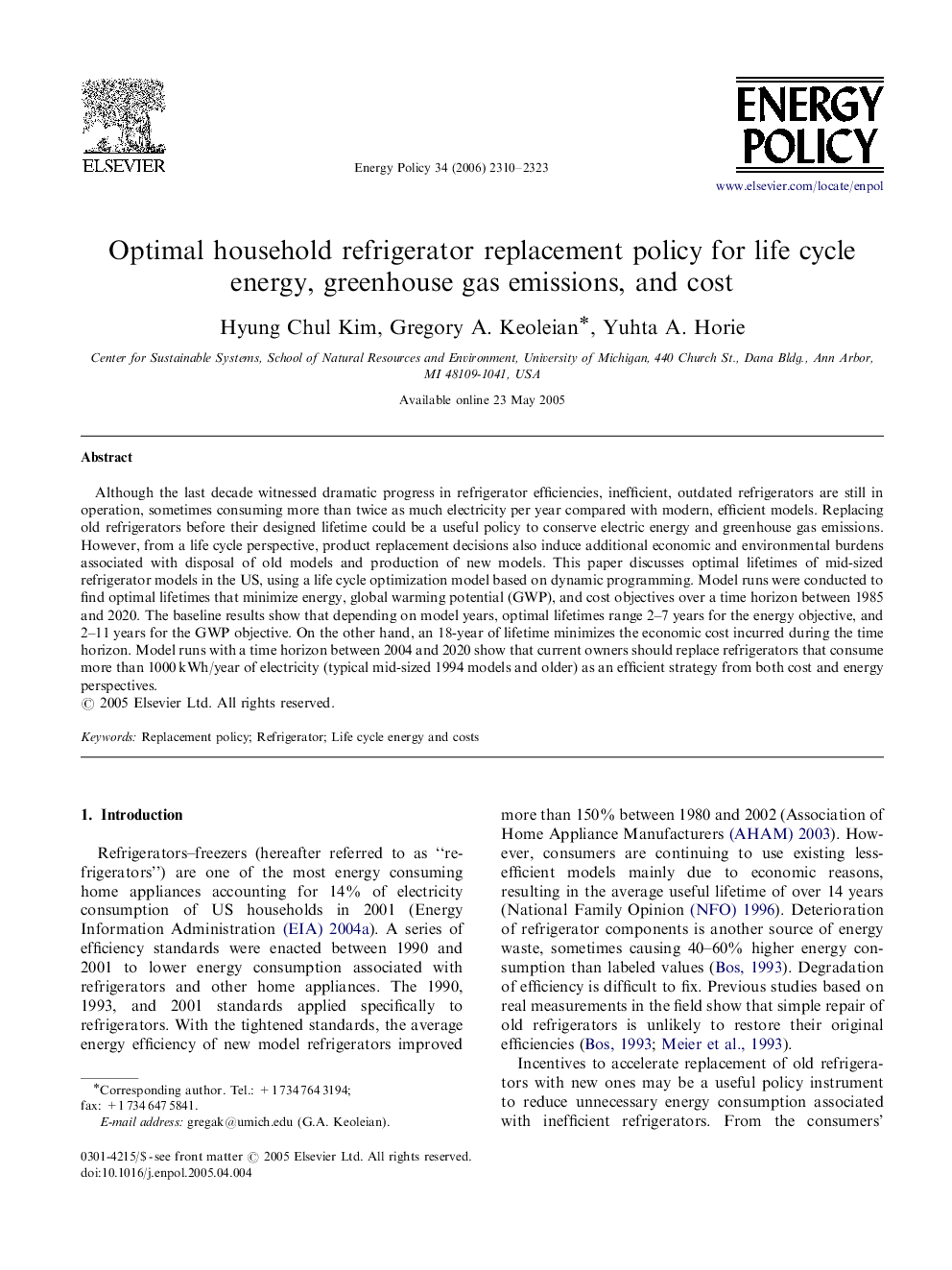| Article ID | Journal | Published Year | Pages | File Type |
|---|---|---|---|---|
| 994398 | Energy Policy | 2006 | 14 Pages |
Although the last decade witnessed dramatic progress in refrigerator efficiencies, inefficient, outdated refrigerators are still in operation, sometimes consuming more than twice as much electricity per year compared with modern, efficient models. Replacing old refrigerators before their designed lifetime could be a useful policy to conserve electric energy and greenhouse gas emissions. However, from a life cycle perspective, product replacement decisions also induce additional economic and environmental burdens associated with disposal of old models and production of new models. This paper discusses optimal lifetimes of mid-sized refrigerator models in the US, using a life cycle optimization model based on dynamic programming. Model runs were conducted to find optimal lifetimes that minimize energy, global warming potential (GWP), and cost objectives over a time horizon between 1985 and 2020. The baseline results show that depending on model years, optimal lifetimes range 2–7 years for the energy objective, and 2–11 years for the GWP objective. On the other hand, an 18-year of lifetime minimizes the economic cost incurred during the time horizon. Model runs with a time horizon between 2004 and 2020 show that current owners should replace refrigerators that consume more than 1000 kWh/year of electricity (typical mid-sized 1994 models and older) as an efficient strategy from both cost and energy perspectives.
